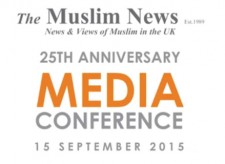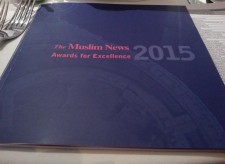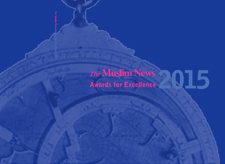There have been many publicised incidents where a conflict has arisen between a work uniform or dress code and a Muslim woman’s desire to wear modest clothing. That was the subject matter of a recent decision of the Employment Appeal Tribunal in the case of Ms Begum v Pedagogy Auras Ltd trading as Barley Lane Montessori Day Nursery (UKEAT/0309/13/RN).
Ms Begum was a Sunni Muslim who wore both the hijab (head covering) and a Jilbab (a long garment covering the body). Although Jilbabs come in different styles and lengths, Ms Begum preferred a long flowing garment that reached at least her ankles whilst standing. The Respondent nursery offered modern apprenticeships through a government agency and Ms Begum attended the nursery for an interview and a trial.
She wore a Jilbab and performed well. At her interview, the manager of the nursery, Mrs Jalah, discussed its policies and procedures with Ms Begum, including uniform. She was advised that she needed to wear non-slip footwear and Mrs Jalah therefore looked at the shoes that Ms Begum had on at the time. She noted that Ms Begum’s Jilbab was covering her shoes and touching the floor. Mrs Jalah therefore told Ms Begum that she was concerned that her Jilbab could be a tripping hazard and therefore a health and safety concern and asked her whether she might consider wearing a shorter Jilbab whilst at work (although she could wear a longer Jilbab before and after work).
Ms Begum alleged that she had been asked if she could wear a knee length Jilbab, but this evidence was not accepted. There was no dispute however that Ms Begum had not been told that she could not wear a Jilbab to work. She had not indicated that she felt offended or upset by the request, and it was agreed that she would discuss the issue with her family and then respond.
Ms Begum did not contact the nursery again. She complained to the agency via which she had obtained her interview that the nursery’s policies were against her beliefs and she subsequently brought a claim in the employment tribunal. Ms Begum claimed that she had been indirectly discriminated against on grounds of her religious beliefs. In order to demonstrate indirect discrimination, Ms Begum needed to show that:(a) the nursery had a policy, criterion or practice (PCP) which it applied to everyone, (b) the PCP put people of a specific religious belief at a particular disadvantage, and (c) the PCP was not a proportionate means of achieving a legitimate aim.
Ms Begum said that the PCP in this case was the refusal of the nursery to allow her to wear full length clothing in the form of a Jilbab. She argued that she had been told that she could not wear the garment that she had worn to the interview, yet she had worn the same garment in previous roles without issue. If the tribunal found that the PCP was appropriate to deal with health and safety concerns, she argued that it was not a proportionate response given that the risk posed by the Jilbab was minimal.
The nursery argued that they had had a discussion with Ms Begum about the length of her Jilbab due to their health and safety concerns. They were a nursery where health and safety was taken very seriously, and staff were monitored for the length of their nails, inappropriate jewellery and clothing which could be hazardous. There were also four other Muslim women who worked at the nursery who wore a Jilbab, that reached their ankles, but did not cover their feet.
The Employment tribunal therefore found that in circumstances where 25% of the nursery’s workforce were Muslim women who were able to wear the Jilbab, and where they were allowed to wear an ankle length Jilbab if they chose, the PCP in this case did not put Muslim women like Ms Begum at any particular disadvantage. The only criteria for the Jilbab was that it did not present a tripping hazard, and the tribunal found that Ms Begum herself was not put at any disadvantage in merely being asked to consider wearing a slightly shorter Jilbab that did not pose a tripping hazard.
In those circumstances Ms Begum’s claim failed and her appeal to the Employment Appeal Tribunal was also unsuccessful since they found that based on the evidence in front of the employment tribunal, their conclusions were perfectly reasonable.
This case shows that where there is tension between an employer’s rules on dress and a Muslim woman’s attire, a discussion between the parties to find a mutually agreeable solution is a helpful first step and of itself is not discriminatory. It may be that an employer’s concerns can be alleviated by a minor alteration to a garment that does not offend a Muslim woman’s desire to follow her faith rulings on dress. However, where an employer has a specific rule in place, that rule needs to have a clear justification before it can be considered non-discriminatory, and also needs to be the least offensive way of dealing with the concern in hand. It is only then that the proportionality test will be met.
Safia Tharoo, Barrister, 42 Bedford Row, London

















